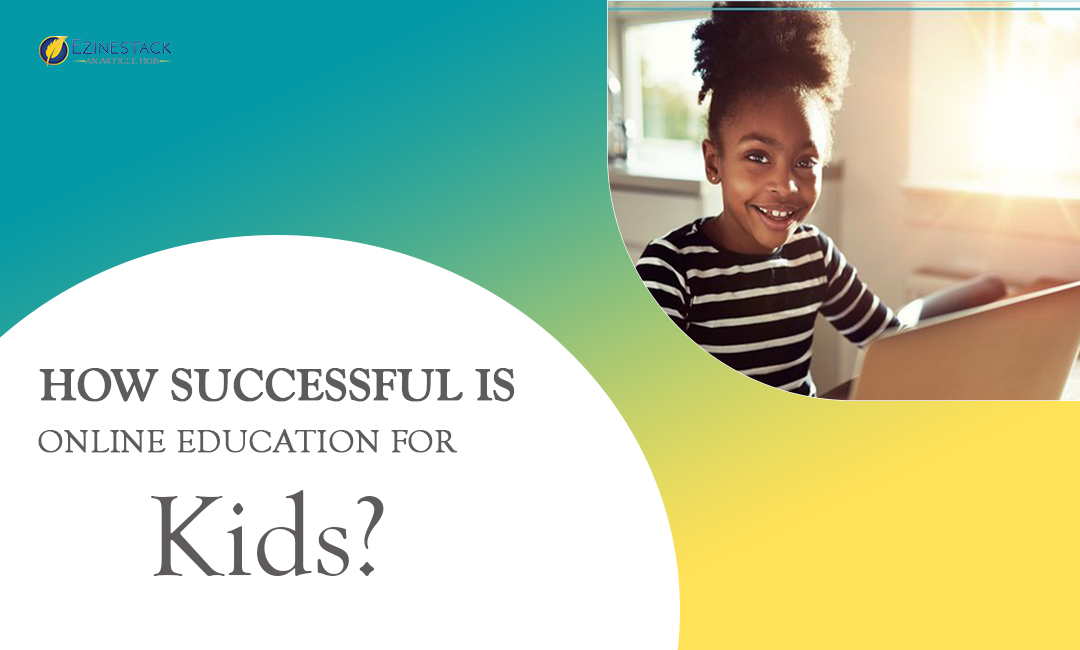How Successful Is Online Education For Kids?
With the outbreak of Covid-19, online education has taken an enormous leap over the last couple of years. Various Ed-tech startups are coming up within a shorter time frame. Some are even upgrading their features to make it worthwhile for both students and instructors.
Thus, the notion of “Hybrid Teaching” has picked up quite a buzz. Because of flexible schedules, the students and teachers are embracing it right away. All they need is a stable internet connection and a smart device.
Online learning has in fact opened doors for worldwide communications and the exchange of information between people. Now suppose you want to learn about artificial intelligence from a lecturer in some foreign university. You can do that by clicking on their video course and even asking for 1:1 meet-up classes, simply sitting at home!
There are a lot of aspects that have contributed to it being on a tear. Backed up with new mobile technologies, the online education for kids system is here to stay.
So let’s see how students and teachers are going to benefit from it.
Saving in Time & Energy:
The most evident reason is saving tons of time. While school or college classes would go as long as 8- 10 hours a day, online classes take hardly 2- 3 hours. And with no commute, the whole thing works pretty fast. The instructors get to save their energy because sometimes they teach by pre-recorded videos and in cases other video or audio notes.
Not restricted to any location:
If you have a portable internet connection you can take or do online classes almost ANYWHERE! This form of education is more convenient to the masses because you don’t need to follow a dress code. So yes, you can put on anything while in class. The best part being, students in one continent can take online classes from trainers from a distant continent. Which is crazy!
Can Be Accessed By people living in rural areas:
With the technological advancements and digitization across the globe, people in the farthest corners can take advantage of internet classes.
Online education platforms are expanding out special classes for rural living people to bridge the gap. Thus, more and more people from the outskirts can learn skills they are passionate about and start preparing for exams or filling job applications.
More Subject Talk & Less Distraction:
Remember how your classrooms used to be? Full of people and so much cry. But with an online class, things are much more narrowed down and subject-specific. Students can focus on one particular subject and have to deal with fewer homework problems.
Instructors arrange classes in batches, so all students get individual doubt clearing sessions. Plus, with fewer “friends” around, students deal with less aberration. Or maybe they have some fun here too!
Makes One A Tech-Savvy:
Ask a 10-year-old to open Google Meet for you and watch them being ‘Flash’! Online education for kids is making them gain more knowledge about computers, websites, tools, and how to operate them. Some institutes offer online coding classes for students to build up games using scratch. Which is smart!
Access To Free Study Materials & Tools:
Several small to big companies are coming up with software solutions while ongoing online classes. These are tools that are helping students make charts or say draw graphs. With millions of free study materials out there, students from the smaller economies can even use the power of the internet. Teachers provide e-book mentions, so no one has to buy anything. It’s all for free!
Forms Strong Student-Teacher Bond:
As the batches get shorter, with a lesser amount of students, teachers get more time with each. Which wasn’t probable the traditional way, with a class full of 50 pupils or more. The instructors simply arrange for doubt clearing classes or 1:1 classes for weak students. Thus online education has become the necessity of the hour.
Less Costly Education:
Schools have dropped their annual fees so more students can take admission while the online journey prevails. Various learning websites such as Coursera, edX are offering courses at half the cost. If you see the higher study systems, people are taking their degrees and masters through online education. The platforms are rolling out more features to gain more daily active users.
Online education is a great boon. Students can learn anything they prefer, and teachers can push their connectivity across the globe. Not only in written format but the content is being shared in video and audio formats, too. Thus making learning fun for students and easily absorbable.
While we consider the good part of the online education journey, we must see the challenges involved.
Challenges Of Online Education For Kids
Lack of Computer Knowledge:
For online classes to occur, a minimum level of qualification is vital for both teachers and students. Many faculties lack knowledge, and so this is a serious concern. Some aren’t economically strong enough to buy smart devices. Thus, if anyone fails to grapple up with the system, they simply cannot function, dragging the entire study program down.
Technology Access:
Be it for technological or logical reasons, lack of internet access to many is still a drawback. This often excludes eligible and meritorious students from enrolling in the best schools. Even in the US, there are parts of the country that do not have a stable internet for taking online classes. Private instructors often meet the loss of students and some schools even do not approve such instructors to fill positions.
Least scope for laboratories:
Kids’ online learning has come a long way, but only theoretically. For science geeks out there, less or no practical are feasible. While some schools do arrange for online lab visits once a week, as practicals are meant to be done by individuals, this is more of a not-happening thing here.
Least Socializing Skills:
With the conventional form of education, students could interact with each other and get to socialize more. But online education highly lacks social development skills. Studying in a real classroom vs virtual classrooms is a huge gap that every single platform fails to provide.
Besides, not every subject can be taught online. Though it seems convenient, there are streams that require teachers and students to be present in a real classroom and discuss things.
The debate online class vs actual class will go on.
So it’s better we focus on things that can be changed to make it easier for both teachers and students.
Final Thoughts
While the challenges can’t go ignored, the quality of education is important while online learning is dealt with. The pattern of learning here is innovative, and students can understand roots easily. Top-quality education is an additive here.
The schools are employing more instructors to teach students in batches for each person’s preference.
Online education will constantly evolve with new technologies and digital tools. It may or may not replace traditional learning methods. Only time will know.
But the most vital question is, will you become a part of it?







